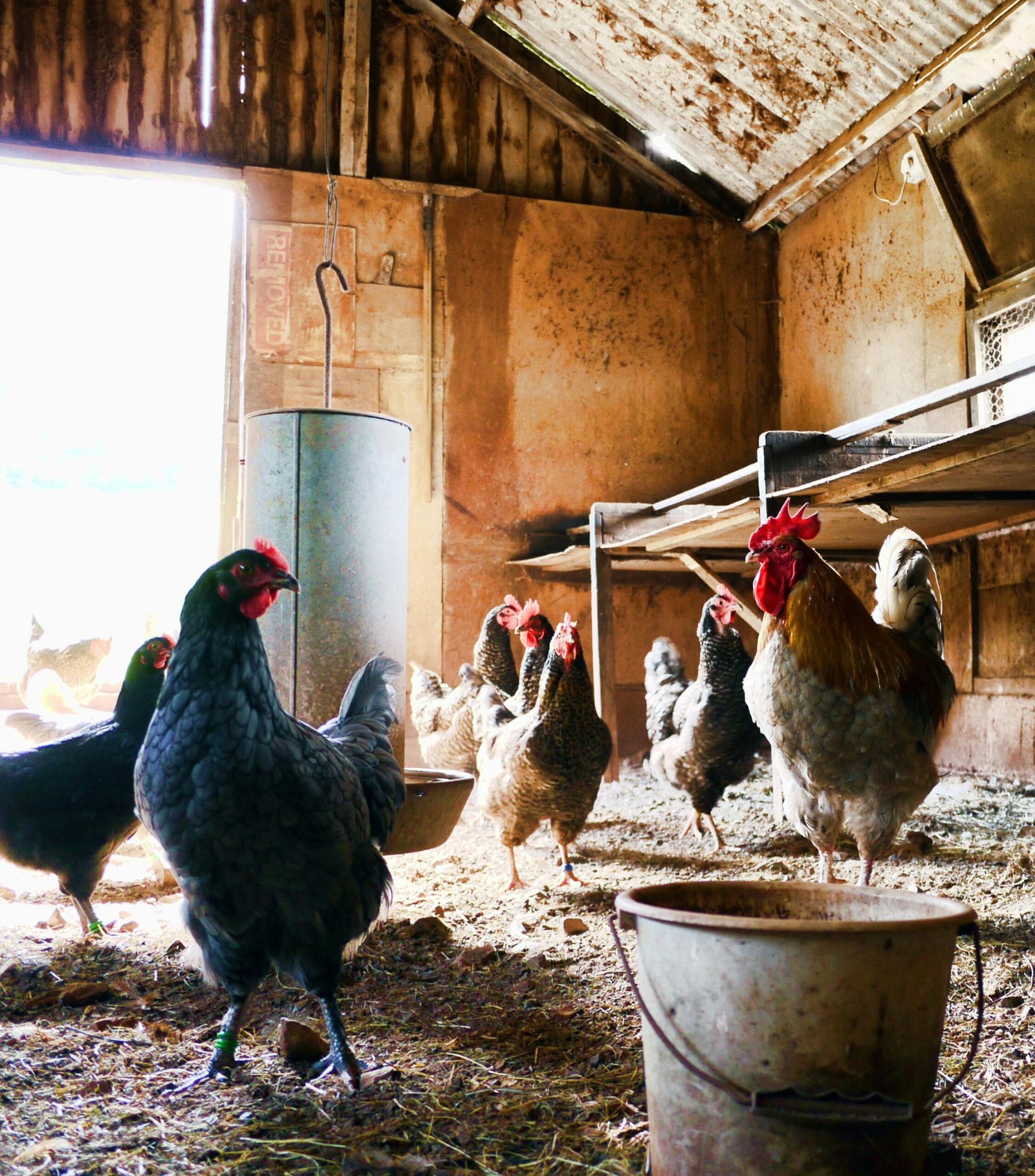Introduction to Agri-Business Opportunities for Nigerian Youths
Agri-business in Nigeria represents a vital component of the nation’s economy, offering extensive opportunities for economic growth and development. As the largest sector in Nigeria, agriculture possesses untapped potential that can significantly contribute to the country’s GDP, job creation, and food security. The current landscape of agriculture in Nigeria is undergoing transformation with emerging technologies and innovative farming practices, creating a conducive environment for the youth to participate and thrive.
Nigerian youth play a critical role in the advancement of the agri-business sector. With a significant portion of the population being young, there exists an opportunity to harness their energy, creativity, and tech-savviness to revolutionize agricultural practices. Engaging young people in agri-business can lead to increased productivity, modernization of farming techniques, and the infusion of fresh ideas that drive the sector forward. This can address the challenges of rural-urban migration by creating lucrative employment opportunities within the agricultural space.
One of the key benefits of youth involvement in agri-business is job creation. The agricultural value chain, which encompasses activities from farm production to processing and marketing, holds the potential to generate millions of jobs for Nigerian youths. These opportunities exist not only in traditional farming but also in allied industries such as agricultural technology, food processing, logistics, and agri-finance. By tapping into these areas, young entrepreneurs can build sustainable businesses that contribute to economic stability.
Moreover, agri-business offers substantial prospects for income generation. Young farmers and agripreneurs can capitalize on the growing demand for food, both locally and globally, to build profitable enterprises. Effective government programs and policies aimed at supporting young people in agriculture can further enhance their ability to access markets, credit facilities, and training programs, thus boosting their income levels and living standards.
In addition to its economic benefits, youth engagement in agri-business is crucial for ensuring food security. By adopting innovative farming methods and engaging in value-added processing, young agripreneurs can enhance food production and reduce post-harvest losses, ensuring a stable food supply for the nation. This not only contributes to nutrition and health but also to the overall economic resilience of the country.
Government Programs and Initiatives Supporting Youth Agri-Business
The Nigerian government has recognized the substantial economic potential within the agri-business sector and consequently developed several programs to empower Nigerian youths. These initiatives are designed to provide young agripreneurs with the resources, knowledge, and financial backing necessary to succeed in the agricultural industry.
One of the pivotal programs is the Youth Agripreneur Support Program (YASP). YASP aims to harness the entrepreneurial spirit of Nigerian youths by offering comprehensive support in the form of grants, training, and access to farmland. The program targets individuals between the ages of 18 and 35 who are passionate about agriculture and demonstrate a viable business plan. By providing seed funding and practical agribusiness training, YASP helps young entrepreneurs overcome initial barriers and start their ventures.
Another key initiative is the Agricultural Youth Empowerment Scheme (AYES). AYES focuses on skill acquisition and capacity building, addressing the knowledge gaps that often hinder youth participation in agriculture. Open to individuals aged 18 to 40, the scheme provides intensive training in modern agricultural practices, farm management, and marketing strategies. The program also offers facilitations for internships and mentorships with established agribusiness enterprises, enhancing on-the-job learning and experience.
The Anchor Borrowers’ Programme (ABP) is another significant initiative aimed at transforming the agricultural sector by providing financial support to smallholder farmers. This program targets young farmers and agripreneurs who need access to credit to scale their agricultural activities. ABP offers low-interest loans and ensures that beneficiaries receive the required training and inputs to maximize productivity. By linking them with anchor companies that provide a ready market for their produce, ABP reduces market risks and encourages sustainable agricultural practices.
These government programs and initiatives collectively aim to reduce youth unemployment by promoting agri-business as a viable and lucrative career path. By offering a blend of financial aid, technical training, and market access, the Nigerian government is strategically positioning young agripreneurs to drive economic growth and innovation within the agricultural sector.
Case Studies: Success Stories of Youth in Agri-Business
Nigerian youths have increasingly demonstrated the immense potential of agri-business as a viable and rewarding career path. By tapping into the diverse activities within the sector, such as crop farming, livestock rearing, and agro-processing, many young Nigerians have achieved considerable success despite facing various challenges along the way. The following case studies showcase the journeys of a few enterprising individuals who have made their mark in agri-business.
One notable example is Blessing Okojie, who ventured into crop farming. Initially, her journey was fraught with difficulties, including limited access to quality seeds and financial constraints. However, with perseverance and a keen sense of innovation, she overcame these hurdles by leveraging modern farming techniques and collaborating with local agricultural extension services. Today, Blessing’s farm produces a variety of high-yield crops, supplying local markets and generating significant income for her family.
Another inspiring story is that of Michael Adenuga, who pursued livestock rearing against the backdrop of widespread skepticism. Michael started with a small poultry farm, facing high mortality rates and feed shortages during the early stages. Nonetheless, through continuous learning and adaptation, he embraced best practices in animal husbandry and secured partnerships with feed suppliers. His dedication paid off, and he now operates one of the most successful poultry businesses in his region, providing employment to several other youths.
The realm of agro-processing has also seen exceptional success stories, such as that of Folake Bamidele. Recognizing the importance of value addition, Folake launched an agro-processing venture that transforms locally sourced cassava into high-quality flour and snacks. Her business journey was marked by technological and logistical challenges, but she overcame these by investing in efficient processing equipment and establishing a reliable distribution network. Today, Folake’s agro-processing enterprise not only boosts local agricultural production but also adds substantial value to raw agricultural products, making her a pivotal figure in her community.
These success stories underscore the myriad opportunities available in agri-business for Nigerian youths. By demonstrating resilience, innovation, and strategic thinking, these young entrepreneurs have set a powerful example, highlighting the sector’s potential to drive economic growth and social development.
How to Get Started: Practical Steps and Resources
Embarking on a journey into agri-business provides Nigerian youths with a gateway to harness their entrepreneurial spirit and drive economic progress. The first and foremost step is to identify a niche that aligns with both local market demands and personal interests. Whether it’s crop production, livestock farming, aquaculture, or agro-processing, choosing a specialized area can significantly enhance the prospects of success.
Once a niche is selected, the next crucial step is developing a comprehensive business plan. This plan should outline key elements such as market analysis, financial projections, marketing strategies, and operational processes. A well-thought-out business plan not only provides a roadmap for the venture but also becomes a critical tool when seeking financial support.
Securing funding is often one of the biggest challenges for aspiring agripreneurs. Exploring multiple avenues such as government grants, agricultural loans, and private sector investments can unlock various opportunities. Nigerian government initiatives such as the Anchor Borrowers’ Program and the Youth Entrepreneurship Support (YES) program offer financial assistance and resource access geared towards young farmers. Additionally, crowdfunding platforms and agribusiness incubators like Farmcrowdy can connect entrepreneurs with potential investors.
Leveraging government programs and private sector partnerships is essential in this journey. The Central Bank of Nigeria (CBN) and the Nigerian Incentive-Based Risk Sharing System for Agricultural Lending (NIRSAL) provide financial risk management and credit facilities tailored for agricultural projects. Collaborating with established agribusinesses can also provide mentorship, market linkages, and technical expertise.
Education and continuous learning are pivotal in staying updated with agricultural best practices and innovations. Numerous resources are available to aid in this quest. Platforms like Coursera and edX offer online courses focusing on various aspects of agriculture and business management. Local agricultural institutions frequently conduct workshops and training sessions. Similarly, mentorship programs such as the Tony Elumelu Foundation mentorship initiative can provide guidance from experienced agripreneurs.
By following these practical steps and utilizing the available resources, Nigerian youths can effectively navigate the pathway to establishing their own agri-business ventures, contributing to both their economic empowerment and the overall agricultural development of Nigeria.



